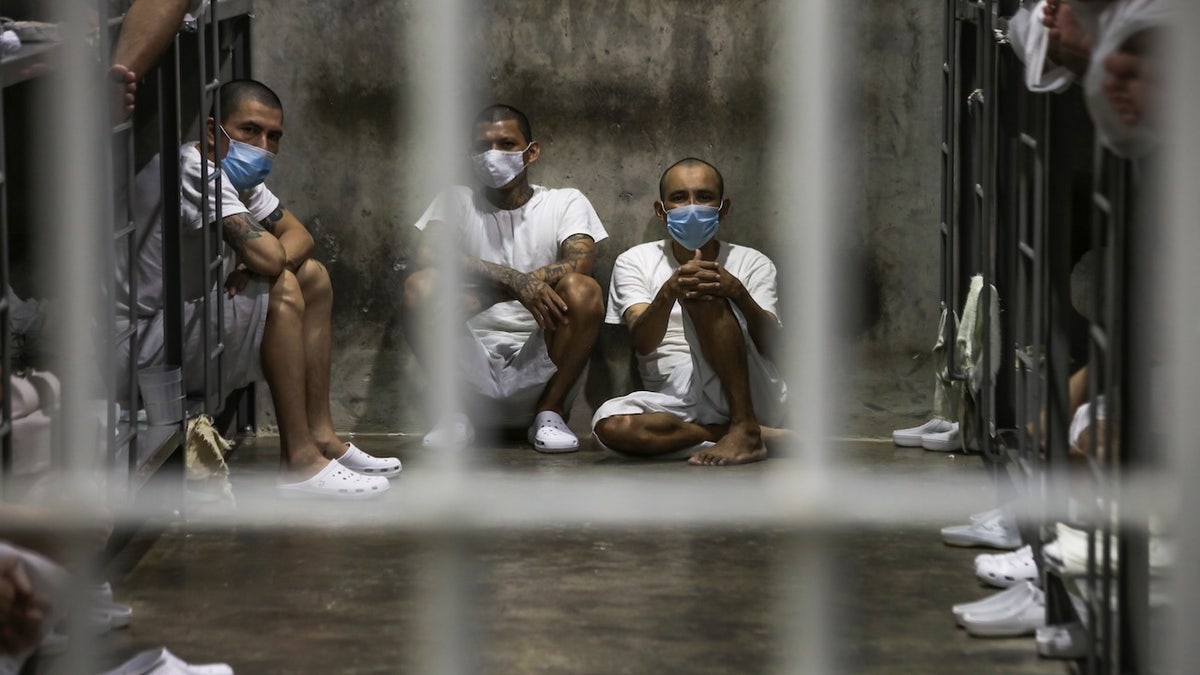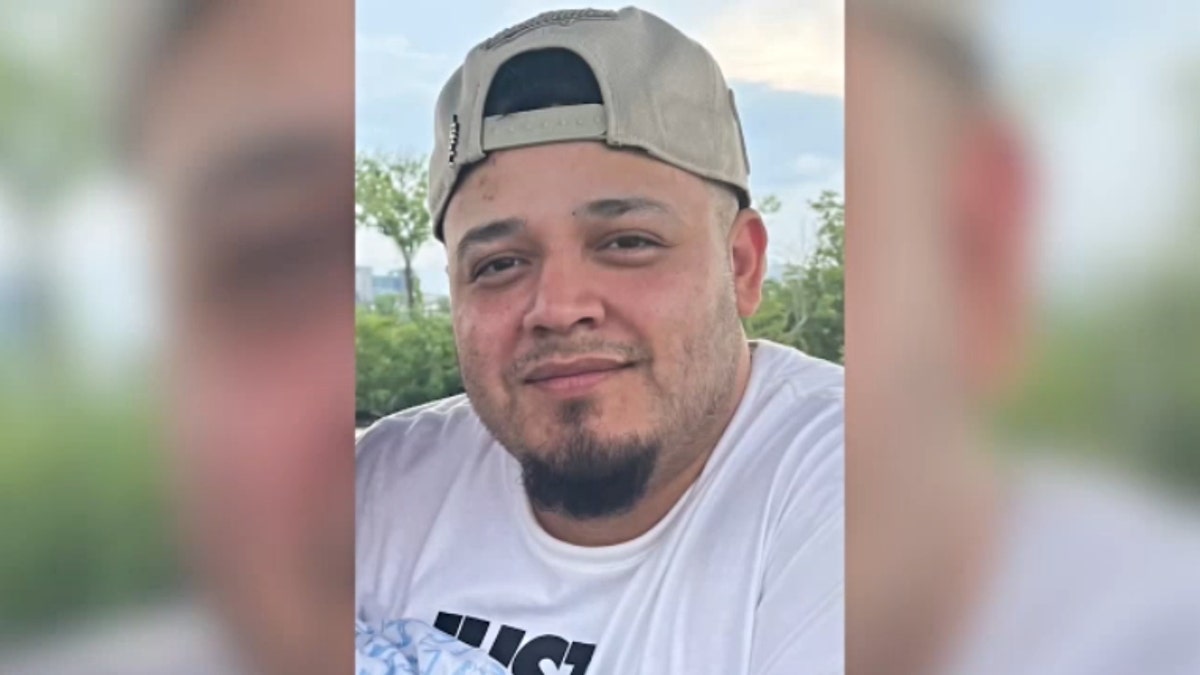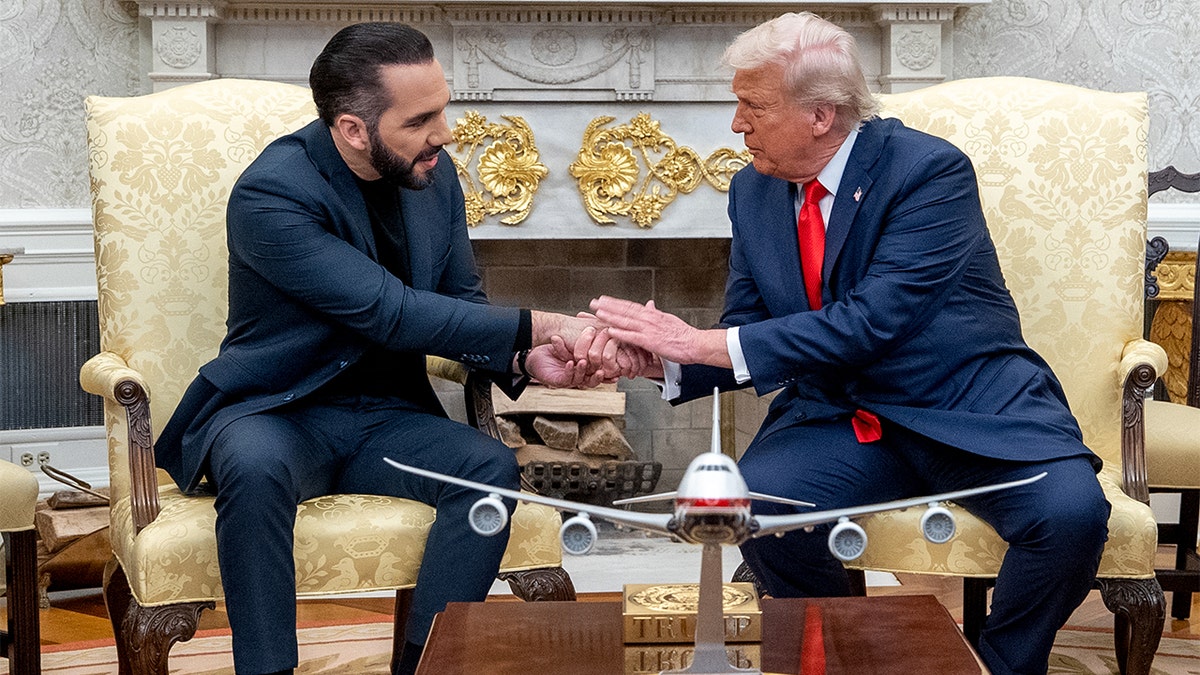‘Cancel vacations’: Judge gives Trump admin two weeks to prove they aren’t in contempt of court
A federal judge told Trump lawyers they must expeditiously comply with her requests in the case of Kilmar Armando Abrego Garcia, the Maryland resident wrongfully deported to El Salvador last month, as she weighs next steps in the politically charged case.
U.S. Judge Paula Xinis told Trump administration lawyers Tuesday that they will have two weeks to comply with discovery requests in the case of Abrego Garcia, the Maryland resident deported to El Salvador last month in what Trump officials have acknowledged was an “administrative error,” demanding the government spend time detailing with what, if any, steps it is taking to facilitate his release and return to the U.S.
“Cancel vacations, cancel other appointments,” Xinis told lawyers at the Tuesday evening hearing.
She also said she would issue an order in writing directing the government to show her how they have complied with her order to facilitate the release of Abrego-Garcia from El Salvador.
After the two-week period, she will weigh the discovery submissions and determine whether or not the government acted in good faith — or whether there is evidence that could preempt potential contempt proceedings.

Xinis stressed at the outset of the hearing that, in her view, the Supreme Court had “already spoken” in ordering the U.S. to facilitate the release of Abrego Garcia and resume his immigration proceedings as if he were never removed.
“We’re going to do it in a targeted way, but we’re not going to spend a lot of time doing it,” Xinis said of the discovery process, which she stressed will move fast.
Lawyers for the Justice Department said in response that they objected to her view of the Supreme Court’s ruling, and the expedited discovery — an objection she dryly quipped in response she would note for the record.
“Just so everyone knows what my current thinking is, Abrego Garcia already won his injunctive proceedings,” Xinis told Trump lawyers at the outset of the hearing. “We’re here today to talk about scope of the remedies.”
“You made your jurisdictional arguments. You made your venue arguments,” Xinis told Justice Department lawyer Drew Ensign. “You made your arguments on the merits. You lost.”
Just minutes before the hearing, DHS acting General Counsel Joseph Mazzara said in a court filing that, should he be returned to the U.S., DHS would take him into custody and remove him to another third country, citing his alleged MS-13 membership.
The hearing comes after government lawyers failed to comply with multiple directives updating the court on his location and custodial status, as well as efforts taken to facilitate his return — a lack of compliance Xinis previously described as “extremely troubling.”
FEDERAL JUDGES IN NEW YORK AND TEXAS BLOCK TRUMP DEPORTATIONS AFTER SCOTUS RULING

Xinis planned to weigh these developments as the court considers next steps in the case, including whether to pursue civil contempt proceedings against the administration.
Lawyers for Abrego Garcia argued Tuesday that there is no evidence to show the Trump administration has taken any steps to date to facilitate his return to the U.S. as soon as possible, as ordered by Xinis and upheld by the Supreme Court last week.
“The Supreme Court order requires the government to ‘facilitate’ Abrego Garcia’s release from custody in El Salvador and to ensure that his case is handled as it would have been had he not been improperly sent to El Salvador,” his lawyers wrote.
To date, they noted, the government’s updates “do not indicate that any steps have been taken to comply” with the federal and Supreme Court rulings.
The administration’s apparent refusal to act — or even to clarify Abrego Garcia’s location — has pushed the case to a boiling point, raising the prospect that Xinis could move to hold the Trump administration in civil contempt.
FEDERAL JUDGES IN NEW YORK AND TEXAS BLOCK TRUMP DEPORTATIONS AFTER SCOTUS RULING

The hearing is the latest in a flurry of legal battles centered on Trump’s ability to deport certain migrants from the U.S. to El Salvador.
Most recently, two federal judges in Texas and New York agreed to temporarily block the Trump administration‘s use of the 1798 Alien Enemies Act law to immediately remove some migrants from U.S. soil, siding with plaintiffs’ contention that allowing removals under the law would likely cause immediate and irreparable harm.
In Brownsville, U.S. District Judge Fernando Rodriguez Jr. cited a “substantial likelihood” that the individuals in question “could not be returned to the United States” if deported.
In addition to filing incomplete status updates and refusing to answer questions about Abrego Garcia’s whereabouts or efforts to secure his return, Trump officials suggested at the White House on Monday that the U.S. lacks the authority to bring him back.
APPEALS COURT BLOCKS TRUMP ADMIN’S DEPORTATION FLIGHTS IN ALIEN ENEMIES ACT IMMIGRATION SUIT

Asked Monday about progress in returning Abrego Garcia to U.S. soil, Trump officials said his return was “up to El Salvador” and that the U.S. would “provide a plane” — appearing to ignore a court order to facilitate his return.
“That’s up to El Salvador if they want to return him,” Attorney General Pam Bondi told reporters. “That’s not up to us.”
This contention was backed by other Cabinet officials, including White House deputy chief of staff Stephen Miller, and by Salvadorian President Bukele himself.
“How can I return him to the United States? Like if I smuggle him into the United States?” Bukele told reporters Monday during a sit-down with President Donald Trump and other senior administration officials.
“Of course I’m not going to do it. The question is preposterous,” he said.
CLICK HERE TO GET THE FOX NEWS APP
As of this writing, the Trump administration has not returned any of the individuals who have been sent to El Salvador’s sprawling, high-security prison, including any Venezuelan nationals who may have been mistakenly identified as members of the Tren de Aragua gang, as well as Abrego Garcia.
